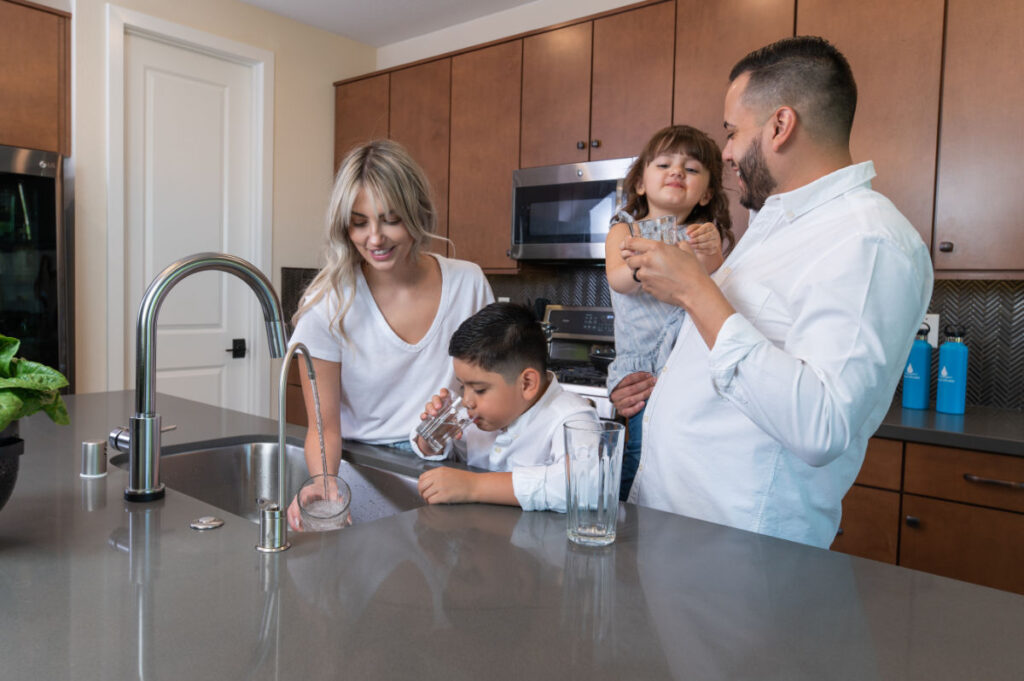Learn How to Test Your Water, Choose a Water Filter System, and Get the Best Drinking Water for Your Home
What Water Filter System Do I Need?
In Part 1 of this series, we explained why your water might taste bad and why boiling water is not enough. Then in Part 2, we looked at the most common water purification options, including carbon filters, reverse osmosis (RO), distillation, and UV water purifiers.
Now it’s time to help you make the best choice for your home. Choosing the right water filter doesn’t have to be confusing. When you follow the right steps, you can find a system that gives you clean, safe, and great-tasting drinking water every day.
Step 1: Test Your Water First
Before choosing a filter, you need to understand what’s actually in your water. You can’t fix a problem if you don’t know what it is.
A. Home Test Kits: A Quick Start
You can buy simple test kits at most stores or online. These kits can check for:
- Chlorine
- Water hardness
- pH levels
- Lead (in some kits)
While not as accurate as lab tests, they can give you quick clues about your water quality problems.
B. Lab Testing: The Most Accurate Option
For the most detailed results, send a water sample to a certified lab. Lab tests can detect:
- Heavy metals like lead or arsenic
- Pesticides and chemicals
- Bacteria and viruses
These results help you choose the right water purification system for your specific needs.
Step 2: Match the Right Filter to the Problem
Once you know what’s in your water, choose a filter that solves that specific problem. Here are common matches:
If your water has… | Then choose this water filter… |
|---|---|
Chlorine, bad taste or odor | Activated Carbon Filter (like a carbon block filter) |
Heavy metals, fluoride, nitrates | RO Water Purifier |
Germs, bacteria, or viruses | UV Water Purifier (works best with other filters) |
Sand, dirt, or cloudy water | Sediment or Ceramic Filter |
Need for ultra-pure water | Distiller |
Step 3: Consider These Key Factors
When picking the best water purification system, it’s not just about what it removes. Here are other things to think about:
a. Certification & Safety
Look for filters certified by NSF International or similar groups. This shows the filter was tested to do what it claims.
b. Installation & Maintenance
Ask yourself:
- Can I install it myself?
- How often do I need to change the filters?
- Are replacement parts easy to find and affordable?
c. Total Cost
Think about both the upfront price and the long-term cost of replacement filters or energy use (especially for RO or distillation systems).
d. Flow Rate & Water Waste
Some systems:
- Slow down your water flow
- Create wastewater (like RO systems)
Think about how much water your household uses and how quickly you need it.
A Great All-Around Option: Solid Carbon Block Filters
For many homes with bad tasting water due to chlorine, VOCs, or even lead, a solid carbon block filter is a smart and practical choice.
Why It Works:
- Removes chlorine, pesticides, VOCs, and some heavy metals
- Improves taste and smell noticeably
- Keeps helpful minerals like calcium and magnesium in the water
- No wastewater, making it eco-friendly and cost-effective
Best for: Families looking for a reliable, easy-to-use filter for daily use
Popular choice: Brands like Multipure offer NSF-certified carbon block systems
Conclusion: You’re Ready to Choose Clean Water
Now that you understand your water quality problems, the limits of boiling, the different water cleaning options, and how to choose a water filter system to your needs—you’re ready to take action.
✔ Start by testing your water
✔ Choose a filter that solves your specific issues
✔ Think about cost, maintenance, and performance
✔ Enjoy clean, great-tasting water with confidence
Missed the earlier posts in this series? Catch up below:
[Part 1: My Water Tastes Bad – Why It Happens & Why Boiling Isn’t Enough]
[Part 2: Beyond the Boil – Exploring Different Ways to Filter Your Drinking Water]






